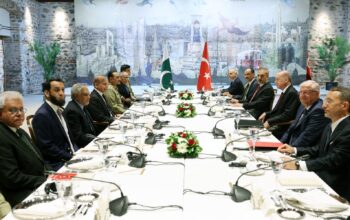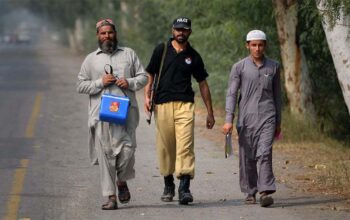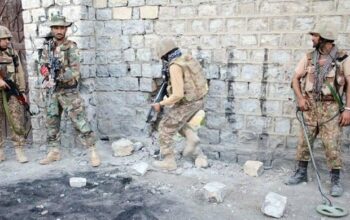By Staff Reporter
ISLAMABAD: India’s decision to host a tourism meeting of the Group of 20 (G20) countries in Indian-held Kashmir has sparked criticism from Pakistan and some other members of the bloc, who view the move as a violation of the region’s disputed status.
Foreign minister Bilawal Bhutto-Zardari said on Monday that New Delhi was ‘misusing’ its presidency of the G20 by holding the event in Srinagar, the capital of Jammu and Kashmir, which is claimed in full but ruled in part by both India and Pakistan.
The meeting, which began on Sunday and will end on Tuesday, is the first major international event in Kashmir since India revoked its special autonomous status and split it into two federally governed territories in 2019, prompting Islamabad to downgrade its diplomatic relations with its neighbor and cut trade ties.
China said on Friday it would not attend as Beijing “firmly opposes holding any form of G20 meeting in disputed territory.”
Other members of the bloc, including Turkey, Saudi Arabia, Egypt, and Indonesia were also expected to stay away, according to reports.
The Muslim-majority region is also plagued by a decades-long independent movement that has killed tens of thousands of people.
“India is hosting the meeting of a tourism working group of G20 in Srinagar, which is yet another display of India’s arrogance on the world stage,” Bhutto-Zardari said while addressing the Azad Kashmir assembly.
The foreign minister is visiting Azad Kashmir, the part of the region governed by Pakistan, on a three-day trip to express solidarity with the Kashmiri people as New Delhi hosts the G20 tourism meeting.
“India is misusing its position as a chair of the G20, a forum created to address global financial and economic issues with utter disregard for the UN Security Council resolutions, the UN charter, and its principal.”
The UN Security Council adopted several resolutions in 1948 and in the 1950s on the dispute between India and Pakistan over Kashmir, including one which says a plebiscite should be held to determine the region’s future.
Another resolution also calls upon both sides to “refrain from making any statements and from doing or causing to be done or permitting any acts which might aggravate the situation.”
UN peacekeepers have been deployed since 1949 to observe a cease-fire between India and Pakistan in Jammu and Kashmir.
As India aims to project normalcy on its side of Kashmir, the Pakistani foreign minister said the “harsh reality” was that Jammu and Kashmir remained one of the most militarised zones on the planet.
“Normal areas are not under siege under millions of troops; normal areas are not operated under so-called governor rule; and normal areas do not have unidentified graves,” Bhutto-Zardari said.
“I wish to remind Indian leaders that unilateral steps in Jammu and Kashmir can neither record legitimacy to their occupation nor suppress the true sentiments of the Kashmiri people as gimmickry cannot replace legitimacy,” he added.
Media reported that security was stepped up across the disputed city with extra CCTV surveillance, a counter-drone unit and marine commandos under the elite National Security Guard. Mobility restrictions for civilians were also put in place on major streets.
Copyright © 2021 Independent Pakistan | All rights reserved




